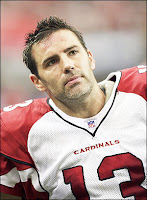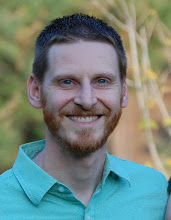When I told my story recently about moving from Reformed to Orthodox Christianity, I said there's more to tell about how I came to be at home in the Orthodox Church. Here's the next chapter of those reflections, going back more than 20 years...
It seems appropriate, somehow, that the first time I attended the Divine Liturgy it was a complete and utter mystery. It was the summer of 2000, and I was teaching evangelistic English classes in Ukraine with a non-denominational American organization, when my student Dima took me on a visit to his church. The church was somewhere in Kyiv—I couldn't identify it now—and the language, style, and feel of it were all completely foreign, as far as I was concerned. Incense? Gold everywhere? And why was there no place to sit? ... Even Dima struggled to answer my questions (saying, "I can't talk about God in English"). He said simply that he had been baptized as an Orthodox Christian and he was trying his best to live this faith, even though there was so much about it that he didn't understand.
The door that had opened just a crack in 2000 was pushed wider when I settled in St. Petersburg, Russia, in the fall of 2002. I walked all over the city under gray northern skies, often passing churches with the three-barred Russian Orthodox cross. Finally I began dropping in to services at several of these churches, marveling at the swell of voices. Whether the a capella church music rose from a bass-voiced deacon up front, or from a priest intoning prayers, or from the whole crowd of gathered worshipers, it was as if it was coming up from the heart of the earth. This was God's creation itself returning praise to Him through its human representatives.
The crown and summit of the whole year is Pascha, Easter, the great feast of our Lord Jesus Christ's glorious Resurrection from the dead. (In the Orthodox Church we will be celebrating it this coming Sunday in 2024; the Western and Eastern calendars don't usually align at this point, and this year they happen to be especially far apart.) So in the spring of 2003, after asking around: where might I best experience this spiritual festival in St. Petersburg?—I took the subway and walked as far as the Saint Alexander Nevsky Lavra (chief monastery).
I arrived at the main church there about 10 PM and found the service already in full swing, with a chanter reading from the Book of Acts while robed clergy and attendants milled around, doing I didn't know what. The rest of that night holds some very distinct memories that stand out from the blur of sometimes-overwhelming impressions. When the choir began chanting a particular hymn, suddenly hundreds and hundreds of voices joined in all around me and it seemed to go on forever—unhurried, confident, solemn and joyful all at the same time...
Voskreséniye Tvoyé, Khristé Spásse,
Ángeli poyút na nebesékh,
I nas na zemlí spodóbi
Chístym sérdtsem Tébe sláviti.
Thy Resurrection, O Christ Saviour,
The Angels in heaven sing,
Make us also worthy on earth
With a clean heart to glorify Thee.
It was as if the women disciples were gathered again at the entrance to the Tomb of Christ, just as they gathered on the first Easter morning: still with all of the same sadness that their Beloved Lord had died, but now having that sadness forever overlaid with the knowledge of His resurrection from the grave: a moment that transcended times and places.
We all moved, a river of humanity, outside of the church and processed together around it, then assembled again at the doors as if to see what we might find inside a cold grave. But then the doors were opened and we all streamed inside again, to a church that was changed by that moment where the universe relives the return to life of its God. The Bishop appeared at the front of the church and called out: "Christ Is Risen!" And it was as if a long-smoldering fire suddenly burst into open flame. The lights were up, the thousands-strong congregation around me shouted out the acclamation in response, and the words of Psalms and hymns testifying to the Lord's victory over Death were proclaimed like banners unfurling in a fresh breeze, one after another after another.
And we sang, and the Gospel for Agape Vespers (the service of Christ's Love) was read out in ten different languages by a row of men in bright vestments. And then we went outside where a small sea of Pascha baskets, containing foods that the faithful had brought to celebrate the Feast, were blessed. Night was unimportant now: the Light had overcome darkness, and it seemed we could have gone on forever.





